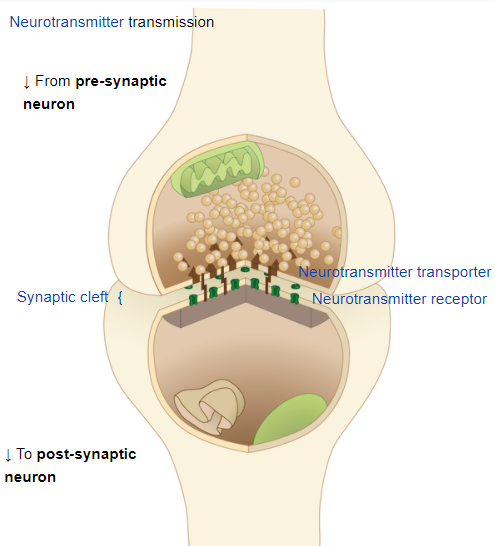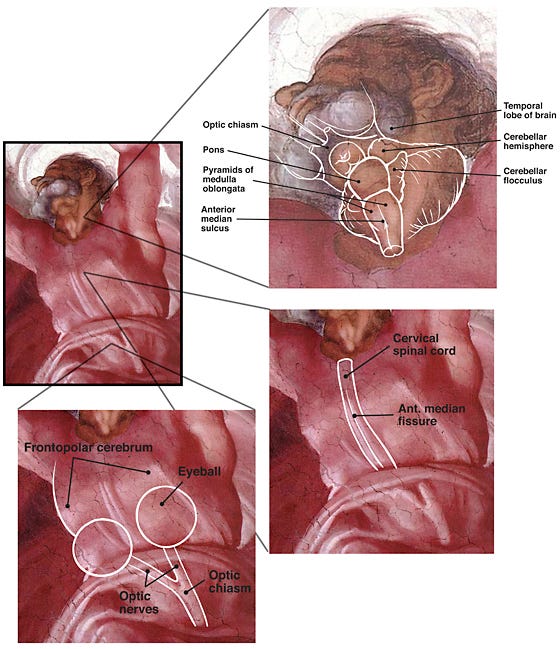Reimagining God: A New Perspective for Non-Believers
Written on
Chapter 1: The Multifaceted Concept of God
The term "God" carries significant weight. It has been employed to describe a broad range of concepts, from personal emotions like love and fear to an omnipotent being credited with the creation of the universe. Generally, there are two prevalent interpretations of God:
- A divine creator, perceived in human-like terms, who loves us unconditionally.
- An all-powerful force that exerts control over every aspect of our lives.
In this discussion, I will focus solely on the first notion: a benevolent creator who loves us.
To begin, it is essential to acknowledge that humans are products of the natural world, explicable by scientific inquiry. Scientists have amassed considerable evidence illustrating how life originated and evolved from simple organisms to the complex beings we are today.

Given our evolutionary background, it is natural to inquire about the workings of our minds. Recent scientific advancements have shed light on the human brain, revealing that it is less intricate than one might assume. The fundamental components of the brain are neurons and synapses, which transmit electrical signals throughout the body.
Your experience is merely a result of your brain interpreting these signals. For instance, if I type on my keyboard, specific electrical signals are produced in your brain, which your sensory organs detect. Your brain interprets these signals, leading you to perceive the act of typing, rather than directly experiencing the action itself.

The Nature of Divine Awareness
I do not experience God in a tangible way. However, I am aware of the divine through various accounts that suggest a guiding love in our lives. To grasp this concept, one might consider the perspective of an ant or a bacterium. These organisms lack an awareness of any higher existence, living solely for survival.
Imagine if an ant became aware of its mortality. Faced with the realization that it has limited time, it might become frantic, scurrying about in search of food for the winter, oblivious to the ticking clock. This illustrates how the awareness of death profoundly influences behavior. Would knowing that a loving creator guides you change how you live?
God is often viewed as the foundational source of existence, knowledge, power, and growth. Across various religions, God is depicted with certain attributes: omniscience (all-knowing), omnipotence (all-powerful), and omnipresence (ever-present). While some may contest these traits as contradictory, it can be said that God transcends our limitations of time and space.

The Essence of the Divine Word
My interpretation of God is straightforward: God is a Word—specifically, a Word with a capital 'W.' A word represents a vibration that can be perceived through various senses, yet the Word of God extends beyond mere human interpretation. It signifies a fundamental vibration inherent in everything, felt both internally and externally.
To reconstruct my understanding of God, I had to discard traditional notions and reshape my comprehension of the universe in a manner that resonates with me.

Imagining God Scientifically
To reimagine God, one must recognize that religious depictions stem from the belief that all phenomena originate from a conscious entity. If I want to visualize God, I must identify the phenomena that humanity attributes to the divine and associate them with a scientific framework.
Consider the elements we regard as divine—life's development, the pervasive feeling of love, the creation of music, and the so-called miracles. Hold these thoughts in mind and try to sense the divine, attributing it to your own understanding.

My personal perception shapes into a universal vibration—a cosmic rhythm that underlies all human experiences. If I perceive my mind and body as an antenna, aligning with this rhythm I refer to as God allows me to master various arts.
Chapter 2: Scientific Perspectives on God
The first video, "Reimagining God: Irresistible Beauty," features Ty Gibson exploring how beauty can be seen as a reflection of the divine. He delves into how aesthetics can shape our understanding of God.
The second video, "Reimagining God: Whoever Lives in Love," presents Ty Gibson discussing the idea that love is central to understanding God. He emphasizes how love can transform our perceptions of divinity.
Exploring the Concept of God
There are various scientific approaches to discussing God. One perspective suggests that through accumulating data and refining models, we can edge closer to an accurate depiction of reality. This inductive reasoning is invaluable for predictions but often falls short of absolute proof.
As we examine God scientifically, we must consider the diverse experiences and beliefs across different religions. The ambiguity surrounding the concept of God complicates our understanding. While the Christian God is often described with specific attributes, many other deities share similar qualities.
We must also ponder the intentions behind creation. If God designed the universe with a specific purpose, why did He choose humans as companions?

Reconstructing the Idea of God
Skeptics can reframe their understanding of God through several avenues:
- Engage philosophically with propositions about God.
- Analyze arguments for or against specific claims.
- Investigate observable phenomena and their best explanations.
- Consider whether nature would be better without God.
- Reflect on what God might do or refrain from doing in various situations.
The human perception of God has evolved. The monotheistic views of the Abrahamic faiths are relatively recent, and the notion of an omnipotent deity is even newer. It is crucial for believers to recognize the adaptability of their beliefs and for non-believers to embrace the possibility of change in their understanding of atheism.
Let us strive to collaboratively enhance our comprehension of God, irrespective of our beliefs.
